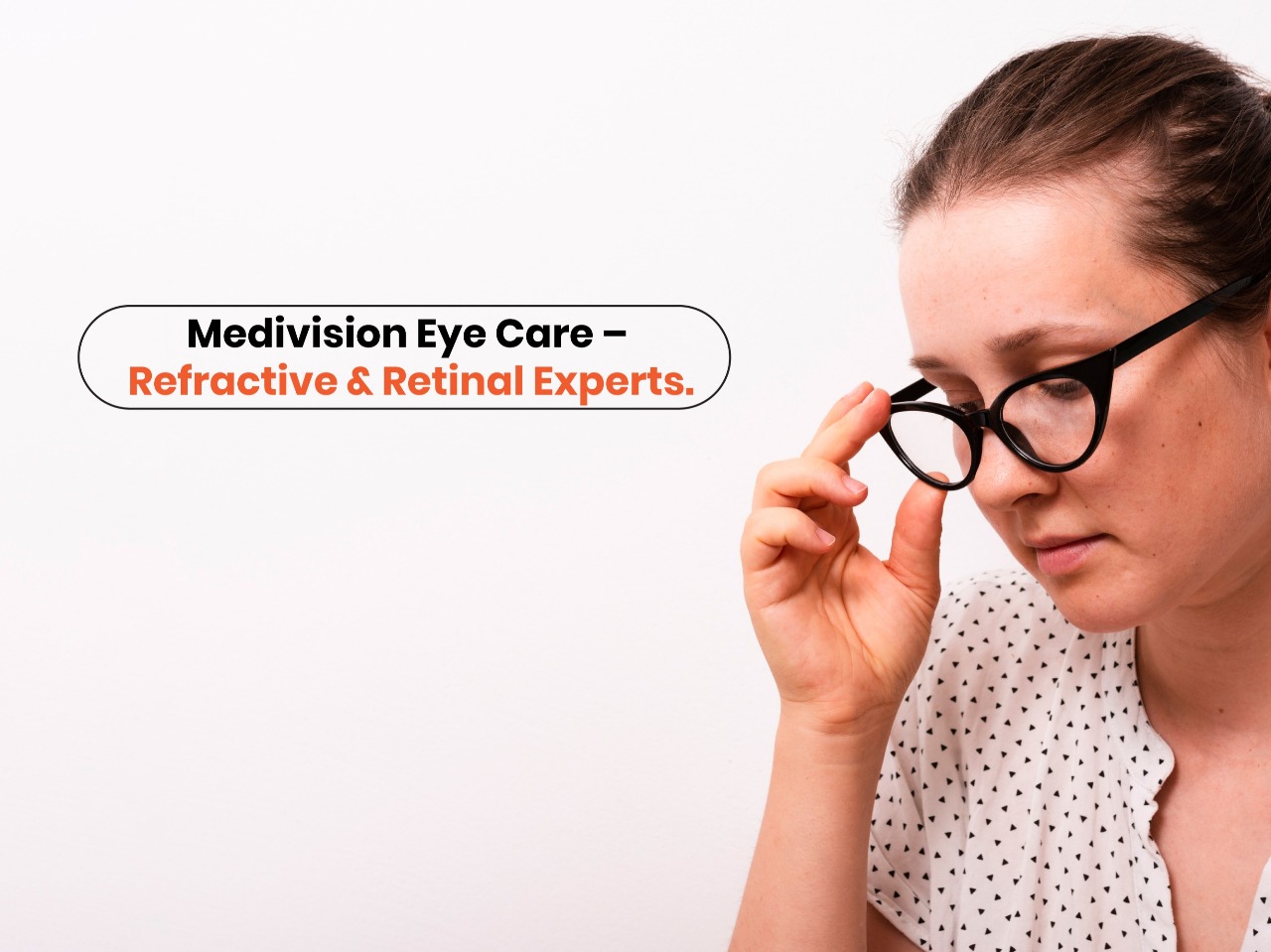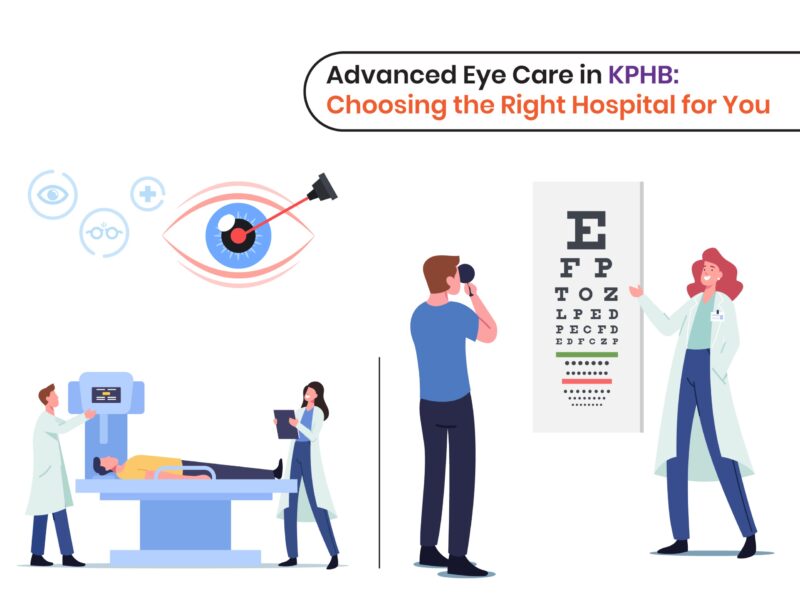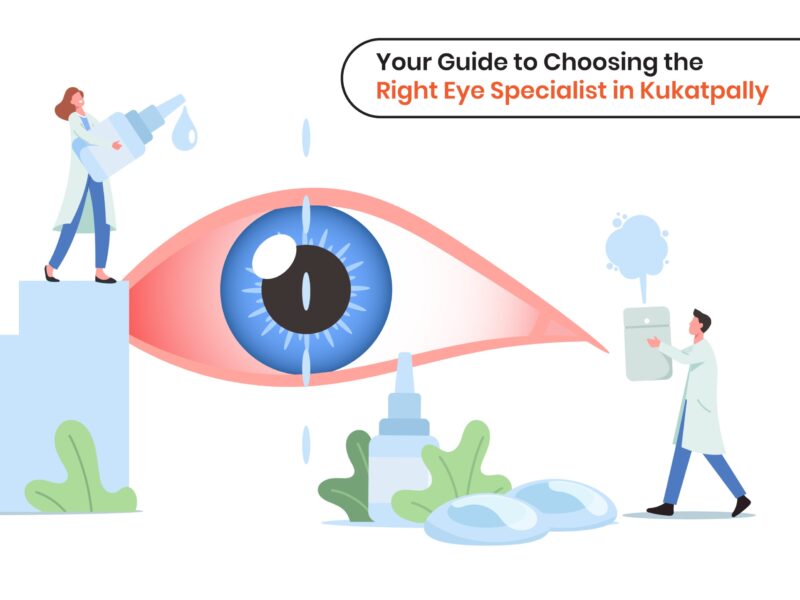Refractive Surgery and Retina Care in Hyderabad: How to Choose the Right Clinic for Your Eye Health
If you’re constantly bothered by cleaning your glasses, struggling with foggy lenses, or managing the upkeep of your delicate contact lenses, then refractive surgery could be the answer you’ve been searching for. Imagine the convenience of waking up with crystal-clear vision and not needing corrective lenses sounds amazing, doesn’t it? But before you hurry to book your procedure, let’s walk you through the essentials in easy-to-understand terms.
What is Refractive Surgery?
Refractive Eye Surgery in KPHB, Hyderabad refers to a specialized form of eye correction surgery that works by reshaping the cornea or replacing the eye’s natural lens to fix vision issues. This procedure offers a long-lasting solution for individuals dealing with refractive errors such as myopia (nearsightedness), hyperopia (farsightedness), astigmatism, and presbyopia. The primary objective of refractive surgery is to minimize or completely eliminate the need for glasses or contact lenses, thereby significantly enhancing a person’s overall quality of life. Thanks to advancements in modern medical technology, refractive eye surgeries have become more accurate and safer than ever, helping individuals attain vision that’s nearly perfect. So, whether you experience blurry vision, trouble focusing, or a constant reliance on corrective eyewear, undergoing surgery for refractive errors could prove to be a truly transformative solution.
How Does Refractive Surgery Work?
Refractive surgery functions by changing the way light is focused onto the retina through reshaping specific parts of the eye. There are various surgical techniques tailored to the patient’s unique condition, which include laser-based methods like LASIK, PRK, and SMILE, as well as lens-based options such as Implantable Collamer Lens (ICL) implantation and refractive lens exchange. These advanced procedures utilize state-of-the-art technology to enhance accuracy, speed up recovery, and deliver optimal vision correction. The selection of the appropriate surgical method depends on several factors, including the individual’s eye health, refractive error, and corneal thickness. By consulting with a skilled ophthalmologist at Refractive Eye Surgery in KPHB, Hyderabad, patients can receive expert guidance on the most suitable treatment plan for their vision correction needs.
Types of Refractive Surgery
Refractive eye surgery encompasses several techniques, each tailored to meet specific vision correction requirements. The most widely performed procedures include:
PRK (Photorefractive Keratectomy) – Advantages & Procedure
PRK stands as one of the earliest developed refractive eye surgeries. The technique involves the removal of the outermost layer of the cornea (epithelium), followed by the reshaping of the corneal tissue with an excimer laser. PRK is especially beneficial for patients with thinner corneas, as it eliminates the risk of corneal flap complications. It is also an ideal choice for people with active lifestyles or irregular corneal surfaces. Although recovery takes slightly longer than with LASIK, PRK remains a safe and effective method for correcting vision.
LASIK Surgery – Flap-Based Vision Correction
LASIK (Laser-Assisted In Situ Keratomileusis) is currently the most commonly performed type of refractive eye surgery. The procedure at Refractive Eye Surgery in KPHB, Hyderabad entails creating a thin flap in the cornea using either a microkeratome or a femtosecond laser, reshaping the corneal tissue beneath it with an excimer laser, and then repositioning the flap. The advantages of LASIK include minimal discomfort, rapid recovery, noticeable vision improvement almost immediately, and excellent long-term results with a high success rate.
Refractive Lenticule Extraction – SMILE / FLEX Techniques
SMILE (Small Incision Lenticule Extraction) and FLEX (Femtosecond Lenticule Extraction) are innovative, minimally invasive laser surgeries that correct vision by extracting a tiny lenticule from the cornea. These methods offer key advantages such as no need for flap creation, reducing the chances of flap-related complications. They also promote quicker healing, a lower risk of developing dry eyes, and are well-suited for individuals with higher degrees of myopia. SMILE, in particular, is ideal for those seeking a flapless, less invasive solution with quick recovery and minimal post-surgery discomfort
Lens-Based Refractive Surgeries
For individuals who may not be suitable candidates for laser-based vision correction procedures, lens-based refractive surgeries provide a reliable and effective alternative.
Implantable Collamer Lens (ICL) – A Reversible LASIK Alternative
ICL surgery entails placing a biocompatible lens inside the eye, delivering long-term vision correction without altering the shape of the cornea. This procedure is particularly suitable for individuals with very thin corneas, high refractive errors, those looking for a reversible solution, or patients with dry eye syndrome. ICL continues to grow in popularity due to its excellent visual outcomes and the option for reversibility, making it a strong alternative to LASIK for many patients.
Refractive Lens Exchange – Ideal for Presbyopia and Severe Refractive Errors
Refractive Lens Exchange (RLE) involves removing the eye’s natural lens and replacing it with an artificial intraocular lens (IOL), offering improved vision while also eliminating the risk of future cataracts. This procedure is particularly advantageous for:
Older adults who are dealing with presbyopia
Individuals with severe farsightedness (hyperopia)
RLE serves as a dual-purpose solution, correcting vision and preventing cataract development later in life.
Is Refractive Surgery the Right Choice for You?
Before scheduling a consultation with the best Refractive Eye Surgery in KPHB, Hyderabad, it’s important to determine whether you are a suitable candidate for refractive surgery. This procedure is not a universal solution; it can deliver remarkable results for many, but it’s not ideal for everyone. Consider the following factors:
You must be at least 18 years old, as your vision prescription needs to remain stable for at least one year prior to the procedure.
If your eyesight continues to change annually, refractive surgery may not be appropriate. Stability in your vision for a minimum of 12 months is a key requirement before undergoing surgery.
Individuals with certain medical conditions, such as autoimmune disorders, dry eye syndrome, or corneal irregularities, may not qualify for this type of surgery. Therefore, a comprehensive health and eye evaluation is essential before proceeding.
You should also maintain realistic expectations. While many patients experience a dramatic reduction or complete elimination of their dependence on glasses or contact lenses, the surgery doesn’t promise perfect 20/20 vision for everyone
What to Expect During the Procedure
Refractive surgery is typically performed on an outpatient basis, meaning you won’t need to stay overnight at the hospital. While the general process is similar, the specific steps can vary slightly depending on the type of procedure you undergo.
Pre-Procedure Preparation:
Before the surgery, your ophthalmologist at Refractive Eye Surgery in KPHB, Hyderabad will conduct a comprehensive eye examination. This includes a series of tests to evaluate corneal thickness, eye shape, and pupil size. These assessments are crucial to ensure the procedure is tailored precisely to your individual vision correction needs.
Numbing Drops:
Prior to the procedure, numbing eye drops will be administered to keep you comfortable. These drops prevent pain or discomfort, allowing you to remain awake and relaxed during the surgery without feeling pressure or pain.
The Procedure:
In LASIK, a laser is used to create a small flap in the cornea, after which the underlying tissue is reshaped to improve vision. PRK, on the other hand, involves gently removing the cornea’s outer layer before reshaping the tissue beneath. Both procedures are relatively quick, typically taking less than 30 minutes. In SMILE, a laser forms a small incision in the cornea, through which a thin, disc-shaped lenticule of tissue is removed to correct the refractive error.
Recovery Time:
Recovery after refractive surgery is generally quite swift. You might experience slightly blurry vision or minor discomfort for a few days, but many individuals notice improved vision within the first 24 hours. Complete healing can take several weeks, during which your doctor will provide detailed post-operative care instructions and schedule follow-up appointments to monitor your progress.
Is It Worth It?
A common concern is whether refractive surgery is truly worth the investment. After all, you’re spending your hard-earned money on a procedure that promises lasting vision correction. For countless individuals, the ability to wake up with clear vision is an incredibly rewarding experience. It eliminates the daily inconvenience of glasses and provides the freedom to enjoy activities like swimming or running without visual aids. Over time, the savings on glasses, contact lenses, and related accessories can be substantial.
However, it’s essential to consider the overall cost, which can vary depending on the type of procedure and the clinic. At Medivision, Refractive Eye Surgery in KPHB, Hyderabad, we believe in transparent pricing and personalized care. Our experienced surgeons are committed to guiding you through every step addressing your concerns, answering your questions, and prioritizing your safety throughout your vision correction journey
Possible Risks and Side Effects
Like any surgical procedure, refractive surgery carries some level of risk. While generally considered safe, there are potential side effects that patients should be aware of, including:
Dry Eyes:
Many patients report experiencing dry eyes following the surgery. In most cases, this condition improves shortly after the procedure, but in rare instances, dryness can persist for an extended period.
Glare and Halos:
Some individuals may see glare or halos around lights, particularly at night. These visual disturbances typically diminish within a few months post-surgery.
Undercorrection or Overcorrection:
In certain cases, the desired vision correction may not be fully achieved. When this occurs, follow-up procedures, glasses, or contact lenses may be necessary to improve vision further.
It’s essential to discuss all possible risks and side effects with your surgeon before committing to the procedure.
Conclusion
Refractive surgery can be a life-changing experience, but it’s important to be fully informed before deciding to proceed. Understanding the entire process, including the potential risks and realistic outcomes, is key to making the right choice. To ensure all your questions are answered and you’re making a well-informed decision, consult with the experienced surgeons at medivision Eye Care and take the first step toward clearer vision.



